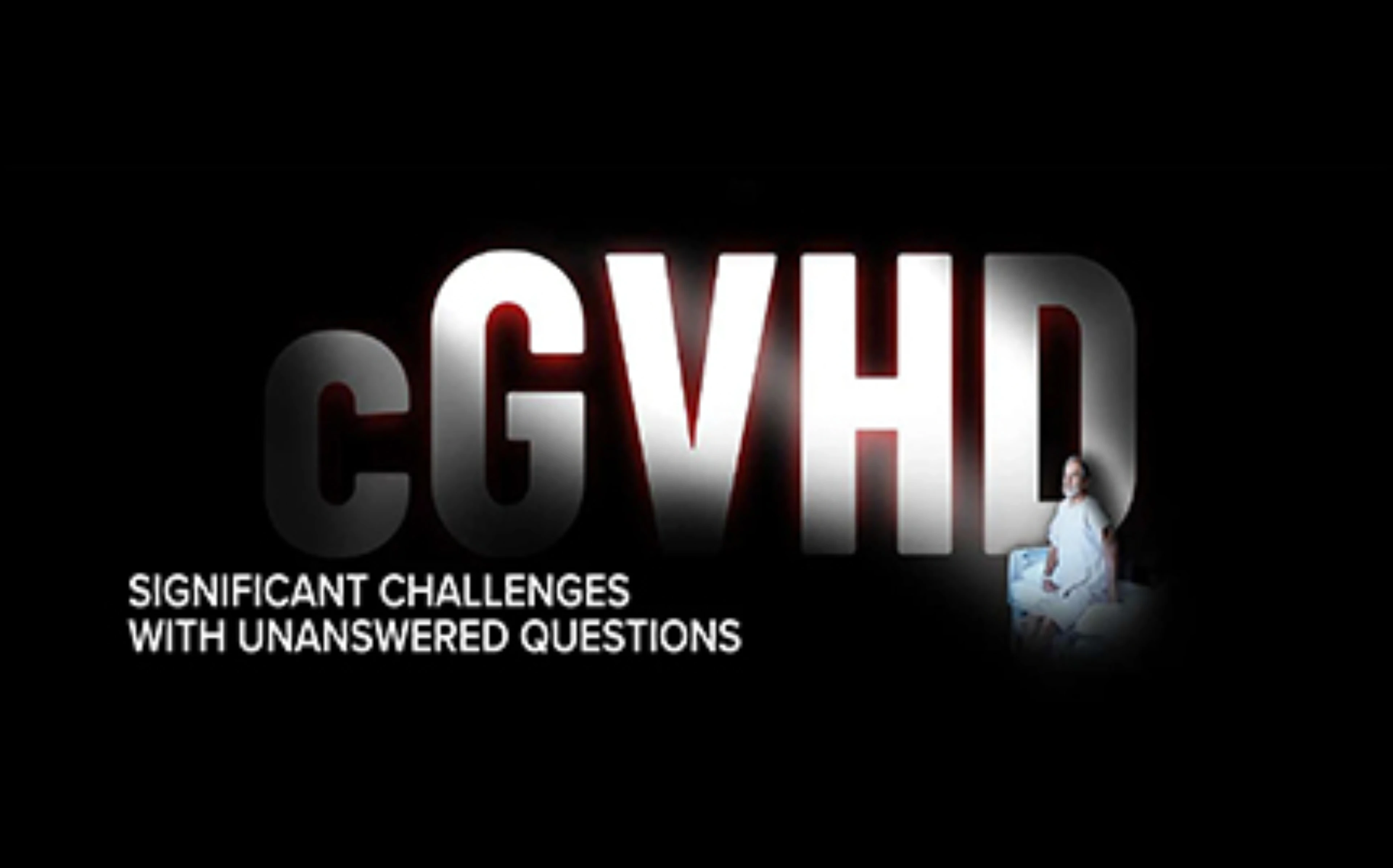- Article
- Source: Campus Sanofi
- May 20, 2025
Molecular Pathway

What molecular pathways are implicated in cGVHD?
Several pathways have been shown to be key mediators of disease progression in chronic graft-versus-host disease.1
ROCK
The rho-associated coiled-coil–containing protein kinase (ROCK) molecular pathway plays a key role in immune and fibrotic disease.2,3 Additionally, ROCK is downstream of major profibrotic mediators and regulates multiple fibrotic processes, such as myofibroblast activation and profibrotic gene transcription.3
ROCK2, specifically, is involved in both the inflammatory and fibrotic components of cGVHD and has been shown to play an important role in modulating immune homeostasis.2
Selective ROCK2 inhibition has been shown to help resolve immune dysregulation by downregulating pro-inflammatory T helper (Th) 17 cells and increasing regulatory T (Treg) cells.2 Furthermore, selective ROCK2 inhibition has been shown to downregulate key fibrotic processes, such as TGF-β and LPA, leading to a decrease in fibrosis and collagen deposition.3-5
BTK
Following HCT, B-cell homeostasis and tolerance mechanisms are disrupted, resulting in reduced memory B-cell formation.6 These host-reactive B cells are associated with the development of cGVHD.7
BTK is a signaling molecule of the B-cell antigen receptor and cytokine receptor pathways,8 which is expressed mainly in B cells and other hematopoietic tissues.9 Signaling via BTK results in the activation of pathways necessary for B-cell trafficking, chemotaxis and adhesion.8
JAK
JAK1 and JAK2 are signal mediators of several cytokines and growth factors that are necessary for hematopoiesis and immune function. STATs are recruited to cytokine receptors during JAK signaling, leading to modulation of gene expression.10
In cGVHD pathogenesis, JAK-STAT molecular pathways regulate the development, proliferation and activation of various immune cell types.10
IL-2
IL-2, a cytokine signaling molecule, is essential for normal Treg cell development, expansion, activity and survival. CD4+ Treg cells play a role in immune tolerance and controlling immune responses. Impaired Treg cell function is characteristic of cGVHD and is associated with loss of tolerance and autoimmunity.11
Research continues to uncover the role of these pathways.

BTK, Bruton’s tyrosine kinase; cGVHD, chronic graft-versus-host disease; HCT, hematopoietic cell transplant; IL-2, interleukin 2; JAK, Janus-associated kinase; LPA, lysophosphatidic acid; ROCK2, rho-associated coiled-coil–containing protein kinase 2; STAT, signal transducers and activators of transcription; TGF-β, transforming growth factor-beta.
-
Mawardi H, Hashmi SK, Elad S, Aljurf M, Treister N. Chronic graft-versus-host disease: current management paradigm and future perspectives. Oral Dis. 2019;25(4):931-948. doi:10.1111/odi.12936
-
Zanin-Zhorov A, Weiss JM, Nyuydzefe MS, et al. Selective oral ROCK2 inhibitor down-regulates IL-21 and IL-17 secretion in human T cells via STAT3-dependent mechanism. Proc Natl Acad Sci USA. 2014;111(47):16814-16819. doi:10.1073/pnas.1414189111
-
Riches DWH, Backos DS, Redente EF. ROCK and Rho: promising therapeutic targets to ameliorate pulmonary fifibrosis. Am J Pathol. 2015;185(4):909-912. doi:10.1016/j.ajpath.2015.01.005
-
Flynn R, Paz K, Du J, et al. Targeted Rho-associated kinase 2 inhibition suppresses murine and human chronic GVHD through a Stat3-dependent mechanism. Blood. 2016;127(17):2144-2154. doi:10.1182/blood-2015-10-678706
-
Takeda Y, Matoba K, Kawanami D, et al. ROCK2 regulates monocyte migration and cell to cell adhesion in vascular endothelial cells. Int J Mol Sci. 2019;20(6):1331. doi:10.3390/ijms20061331
-
MacDonald KPA, Hill GR, Blazar BR. Chronic graft-versus-host disease: biological insights from preclinical and clinical studies. Blood. 2017;129(1):13-21. doi:10.1182/blood-2016-06-686618
-
Miklos D, Cutler CS, Arora M, et al. Ibrutinib for chronic graft-versus-host disease after failure of prior therapy. Blood. 2017;130(21):2243-2250. doi:10.1182/blood-2017-07-793786
-
Imbruvica. Package insert. Pharmacyclics LLC; 2022.
-
Cutler CS, Koreth J, Ritz J. Mechanistic approaches for the prevention and treatment of chronic GVHD. Blood. 2017;129(1):22-29. doi:10.1182/blood-2016-08-686659
-
Jakafi. Package insert. Incyte Corporation; 2021.
-
Koreth J, Kim HT, Jones KT, et al. Efficacy, durability, and response predictors of low-dose interleukin-2 therapy for chronic graft-versus-host disease. Blood. 2016;128(1):130-137. doi:10.1182/blood-2016-02-702852
MAT-SA-2300860/v2/March2024